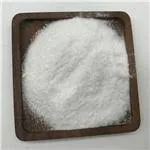The Use of L-Ornithine L-Aspartate A Comprehensive Overview
L-Ornithine L-Aspartate (LOLA) is a compound that has garnered attention in both clinical and therapeutic contexts, particularly in relation to liver health. This dipeptide, a combination of the amino acids ornithine and aspartate, has been studied for its potential benefits in treating hyperammonemia, hepatic encephalopathy, and other conditions associated with liver dysfunction.
Mechanism of Action
The primary mechanism of action of L-Ornithine L-Aspartate involves the detoxification of ammonia, a toxic byproduct of protein metabolism that can accumulate in the bloodstream, particularly in patients with liver disease. When the liver's function is compromised, it is unable to effectively detoxify ammonia, leading to hyperammonemia. The administration of LOLA can promote the conversion of ammonia into less toxic substances, thereby alleviating the neurotoxic effects associated with high ammonia levels.
LOLA is metabolized in the liver and facilitates the urea cycle, which is critical for ammonia clearance. This dipeptide not only helps to lower ammonia concentrations but also serves to enhance nitrogen metabolism, providing the necessary substrates for synthesis of urea, which is ultimately excreted from the body. Moreover, it has been observed that LOLA can improve the energy metabolism of liver cells, further supporting liver function.
Clinical Applications
The application of L-Ornithine L-Aspartate is particularly noted in patients suffering from hepatic encephalopathy, a serious complication of liver failure characterized by cognitive dysfunction and altered mental status due to ammonia buildup. Numerous studies have reported that LOLA can significantly reduce ammonia levels in patients, leading to improvements in clinical symptoms and cognitive function.
use of l ornithine l aspartate

Additionally, research has suggested potential benefits of LOLA in patients with chronic liver disease, regardless of the presence of encephalopathy. By promoting better clearance of ammonia and supporting overall liver function, LOLA could play a significant role in managing chronic liver conditions, enhancing the quality of life for these patients.
Side Effects and Considerations
While L-Ornithine L-Aspartate is generally considered safe and well-tolerated, some individuals may experience mild side effects such as gastrointestinal discomfort, diarrhea, or allergic reactions. It is essential for healthcare providers to evaluate the patient's overall health status and liver function prior to initiating LOLA therapy.
Furthermore, the dosage and method of administration can vary depending on the clinical context and the severity of the liver condition. Intravenous administration may be preferred in acute settings, while oral formulations could be suitable for outpatient management.
Future Directions
Research into L-Ornithine L-Aspartate continues to expand, with ongoing studies examining its efficacy in various patient populations and its potential role in combination therapies for liver disease. Further clinical trials are necessary to fully understand the long-term benefits and any potential risks associated with its use.
In summary, L-Ornithine L-Aspartate represents a promising therapeutic option for managing ammonia toxicity and supporting liver function. Its mechanisms of action underscore its relevance in the context of hepatic encephalopathy and liver disease management, making it a valuable addition to the toolkit of modern medicine for hepatology. As ongoing research unfolds, it is critical for healthcare providers to stay informed about the latest findings to ensure optimal patient care in the field of liver health.

